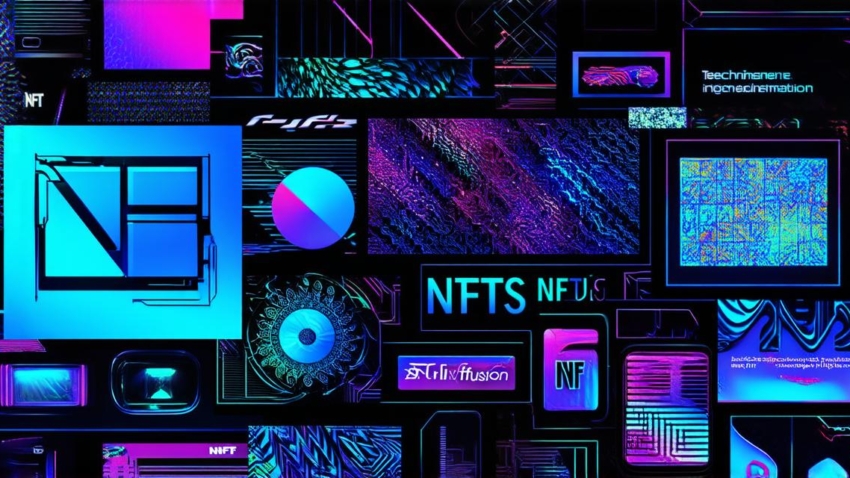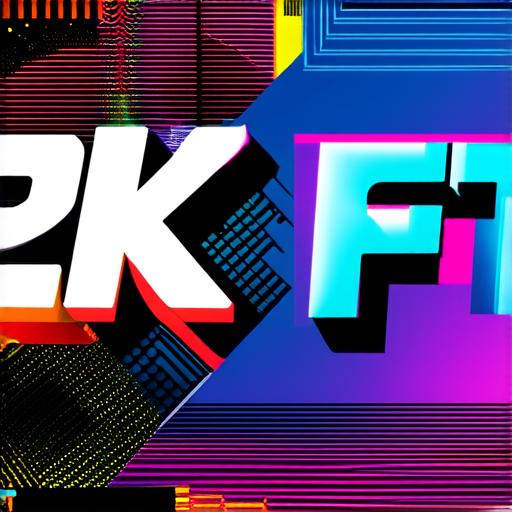
What are the uses of an NFT
What are NFTs?
NFTs are a type of blockchain technology that allows for the creation and transfer of unique digital assets. These assets can be anything from a piece of art to a collectible, virtual real estate or even a moment in time. NFTs are stored on a distributed ledger, making them tamper-proof and verifiable by anyone with access to the network.
One of the key features of NFTs is that they are unique, meaning that there can only be one of each. This makes them highly valuable, as collectors and investors are willing to pay premium prices for rare and exclusive items. Additionally, NFTs can be bought, sold, and traded like traditional assets, such as stocks or real estate.
Uses of NFTs in the Art Industry
The art industry has been one of the first to embrace NFTs as a new way to monetize and protect digital assets. Artists can create unique digital versions of their work and sell them as NFTs, allowing them to control the ownership and distribution of their artwork.
Additionally, NFTs can be used to prove authenticity and ownership of artworks, making it easier for collectors to verify the value of their investments.
One example of the use of NFTs in the art industry is the sale of “Beeple’s Everydays: The First 5000 Days” as an NFT for $69 million in 2021. This digital artwork, created by artist Mike Winkelmann (also known as Beeple), consists of a collage of images captured every day for five years. By selling it as an NFT, Winkelmann was able to control the ownership and distribution of his artwork and set a new record for the most expensive digital artwork ever sold.
Uses of NFTs in the Collectibles Industry
The collectibles industry has also embraced NFTs as a new way to monetize and protect unique digital assets. Collectors can buy, sell, and trade NFTs representing everything from rare sports cards to iconic video game characters.
Additionally, NFTs can be used to prove authenticity and ownership of collectibles, making it easier for collectors to verify the value of their investments.
One example of the use of NFTs in the collectibles industry is the sale of “CryptoPunks” as an NFT in 2017. These unique digital characters, created by Larva Labs, represent a collection of 10,000 randomly generated pixelated images that can be bought, sold, and traded like traditional collectibles. By selling them as NFTs, Larva Labs was able to create a new market for digital collectibles and set a new record for the most valuable collectible ever sold.
Uses of NFTs in Real Estate Industry
The real estate industry is also starting to explore the use of NFTs as a way to monetize and protect unique digital assets. These digital representations of properties can be bought, sold, and traded like traditional assets, allowing for greater liquidity and flexibility in the real estate market.
Additionally, NFTs can be used to prove ownership and authenticity of properties, making it easier for buyers and sellers to verify the value of their investments.
One example of the use of NFTs in the real estate industry is the sale of a luxury property in Miami as an NFT in 2021. This unique digital representation of a property, created by real estate developer OneWorld Properties, was sold for over $630,000 as an NFT. By selling it as an NFT, OneWorld Properties was able to create a new market for luxury properties and set a new record for the most valuable property ever sold as an NFT.
Uses of NFTs in Virtual Experiences Industry
The virtual experiences industry is also starting to explore the use of NFTs as a way to monetize and protect unique digital assets. These digital representations of virtual experiences can be bought, sold, and traded like traditional assets, allowing for greater liquidity and flexibility in the virtual experiences market.
Additionally, NFTs can be used to prove ownership and authenticity of virtual experiences, making it easier for buyers and sellers to verify the value of their investments.
One example of the use of NFTs in the virtual experiences industry is the sale of a unique digital representation of a concert as an NFT in 2021. This virtual concert, created by music festival organizers Coachella, was sold as an NFT for over $415,000. By selling it as an NFT, Coachella was able to create a new market for virtual concerts and set a new record for the most valuable virtual experience ever sold as an NFT.
FAQs
What are NFTs?
NFTs are non-fungible tokens that allow for the creation and transfer of unique digital assets. These assets can be anything from art and collectibles to real estate and even virtual experiences.
2. How do NFTs work?
NFTs are stored on a distributed ledger, making them tamper-proof and verifiable by anyone with access to the network. They are unique, meaning that there can only be one of each, which makes them highly valuable.
3. What industries use NFTs?
The art industry, collectibles industry, real estate industry, and virtual experiences industry all use NFTs as a new way to monetize and protect digital assets.
4. What are some examples of the use of NFTs in various industries?
Examples include “Beeple’s Everydays: The First 5000 Days” sold for $69 million, “The First Tweet” sold for over $480,000, “CryptoPunks” sold as an NFT in 2017, a luxury property in Miami sold for over $630,000 as an NFT in 2021, and a unique digital representation of a concert sold for over $415,000.
5. How can NFTs be used in the real estate industry?
NFTs can be used to monetize and protect unique digital representations of properties, allowing for greater liquidity and flexibility in the real estate market.
6. How can NFTs be used in the virtual experiences industry?
NFTs can be used to monetize and protect unique digital representations of virtual experiences, allowing for greater liquidity and flexibility in the virtual experiences market.
7. What are some potential challenges with using NFTs?
Potential challenges include the need for a standardized system for buying, selling, and trading NFTs, as well as concerns around intellectual property rights and ownership.

Summary
NFTs have the potential to revolutionize the way digital assets are bought, sold, and traded across various industries. From art and collectibles to real estate and virtual experiences, NFTs offer a new way to monetize and protect unique digital assets. While there may be some challenges associated with using NFTs, their potential benefits make them an exciting new technology for the digital age.







